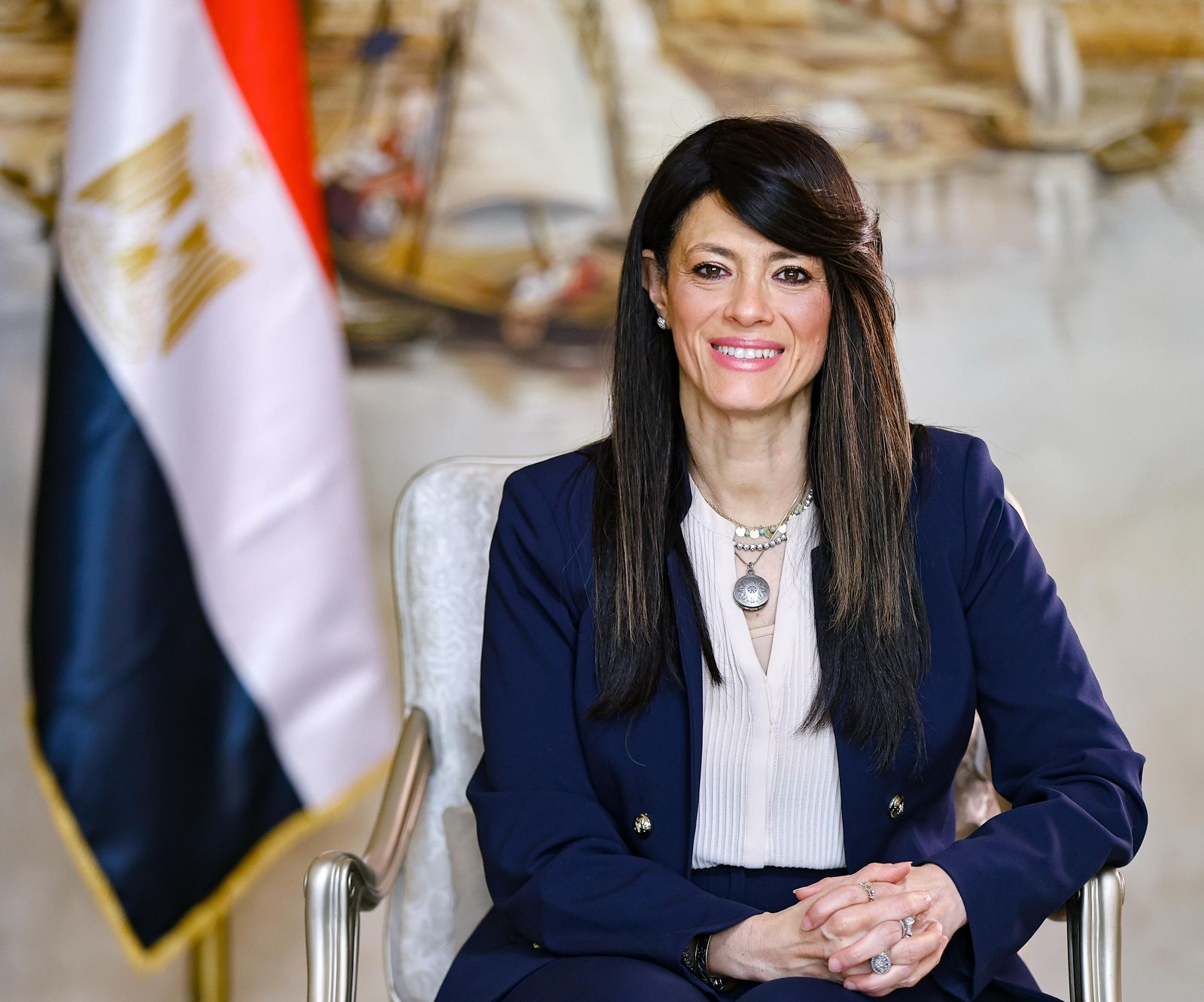H.E. Dr. Rania A. Al-Mashat, Minister of Planning, Economic Development and International Cooperation, participated in the 4th edition of the "Africa Health ExCon" African Medical Conference and Exhibition.
The event was inaugurated by Dr. Khaled Abdel Ghaffar, Deputy Prime Minister for Human Development and Minister of Health and Population, and held under the patronage of H.E. President Abdel Fattah El-Sisi, President of the Arab Republic of Egypt.
The conference took place from June 25-27 under the theme "Innovation and Independence: Leveraging Artificial Intelligence and Local Manufacturing to Strengthen African Health."
In her video speech during the "Sustainable Health Financing" session, H.E. Dr. Rania Al-Mashat stated that the interconnectedness between human capital and economic resilience is no longer merely a theoretical proposition but has become a tangible, measurable, and urgent reality. Investing in people, specifically in their health, is one of the most strategic decisions any nation can make if it aspires to achieve sustainable, long-term, and high-quality growth.
H.E. Dr. Al-Mashat emphasized that there is broad global consensus that investment in human capital is the strongest pillar for building a prosperous and sustainable economy. She pointed out that countries with higher scores on the Human Development Index tend to achieve higher GDP growth rates, more flexible and efficient labor markets, and greater industrial competitiveness. According to the World Bank's Human Capital Index, countries that ensure their citizens have full access to health and education services —especially children— can achieve up to a 40% increase in labor productivity.
H.E. Minister Al-Mashat highlighted the current global uncertainty and recurring disruptions, which have imposed a new reality on developing countries in general, and African countries in particular. This new reality dictates that traditional financing mechanisms cannot be relied upon if investment in human capital is to continue. She noted that projections from the Organization for Economic Co-operation and Development (OECD) indicate a potential decrease in total official development assistance (ODA) ranging from 9% to 17% between 2024 and 2025. Furthermore, the World Health Organization (WHO) estimates that health-related development assistance could decline by 40% to 60% between 2023 and 2025.
In light of these developments, H.E. Dr. Al-Mashat stressed the essentiality to coordinate efforts and shift from reliance on external aid to building independent, Africa-led health financing systems. These systems should be based on mobilizing local resources, increasing investments in the health sector, and enhancing regional economic integration. She reiterated Egypt's commitment to investing in human capital as a fundamental pillar of its development agenda, and its adoption of an ambitious approach based on designing and implementing innovative financing mechanisms that achieve the necessary balance between economic growth requirements and long-term sustainability.
H.E. Minister Al-Mashat indicated that the state's general budget allocates approximately 47% to human capital development, including sectors such as health, education, and social protection. This underscores that empowering Egyptian citizens is the true foundation for achieving sustainable national progress.
H.E. Dr. Al-Mashat also mentioned the government's work program for 2024-2027, where one of its four main pillars is human capital development. She highlighted the Ministerial Group for Human Development, which serves as an integrated institutional framework concerned with integrating health, education, family empowerment, and social development into a unified system that reflects a comprehensive vision for human development.
H.E. Minister Al-Mashat affirmed that healthcare is a cornerstone in building any productive society and an indispensable component for achieving long-term economic resilience. She noted that healthcare in Egypt is a strategic national priority, occupying a pivotal position in the state's vision for achieving comprehensive development, increasing economic productivity, and ensuring long-term stability. She explained that from fiscal year 2020/2021 to fiscal year 2024/2025, the ministry allocated approximately EGP 134 billion in public investments directed towards the health sector. For fiscal year 2025/2026, EGP 69 billion will be allocated to the health sector, representing a 64% increase compared to the current fiscal year.
H.E. Dr. Al-Mashat added that these domestic investments are bolstered by Egypt's bilateral and multilateral partnerships with its international partners. In 2024, over $608 million from the international cooperation portfolio was directed to projects in the health sector. These efforts included cooperation with the World Bank in implementing pivotal projects such as "Improving the Healthcare System in Egypt," as well as implementing debt-swap programs with European and Asian partners. These programs resulted in the release of additional resources directed towards investing in medical infrastructure, expanding access to essential services, and supporting national initiatives in the health sector.
H.E. Dr. Al-Mashat confirmed that these integrated efforts of domestic investments and international partnerships clearly demonstrate Egypt's commitment to mobilizing innovative financing tools to build an equitable and inclusive health system that supports its vision for sustainable economic growth and social prosperity.
In concluding her speech, H.E. Minister Al-Mashat stated that despite significant progress made in human development in general and the health sector in particular, Egypt, like many developing countries, still faces a major challenge in limited funding. She stressed that achieving sustainable and high-quality economic growth cannot be accomplished through government efforts alone. Instead, it requires multi-stakeholder partnerships involving governments, civil society, the private sector, and development partners to provide equitable, comprehensive, and high-quality healthcare services.
